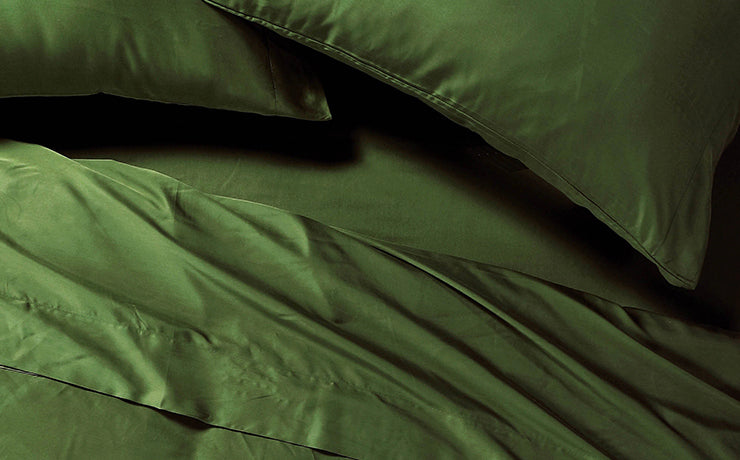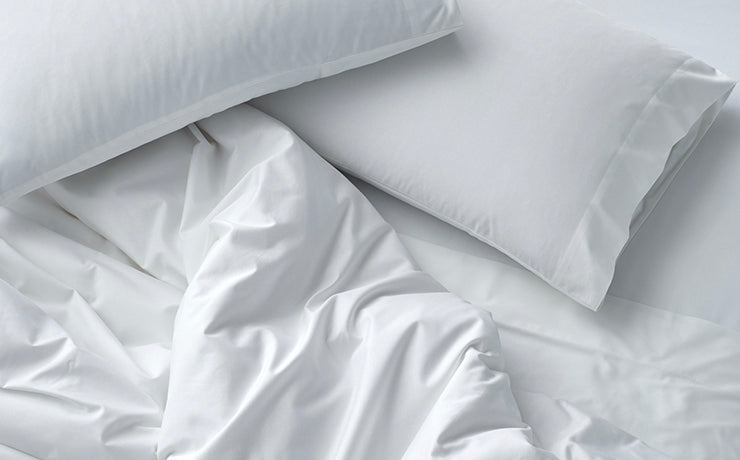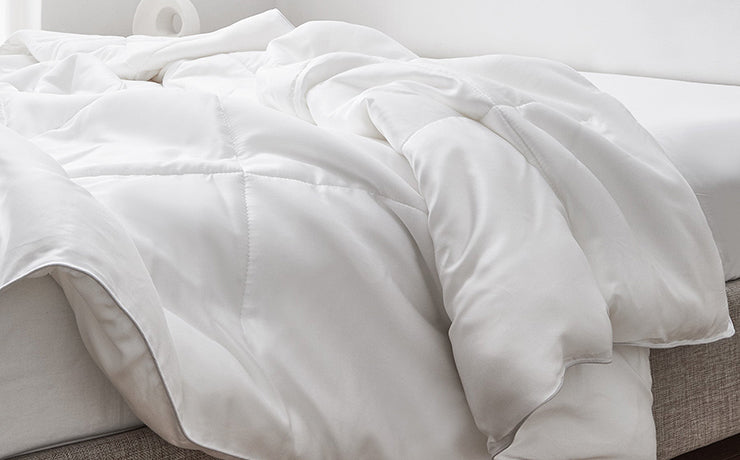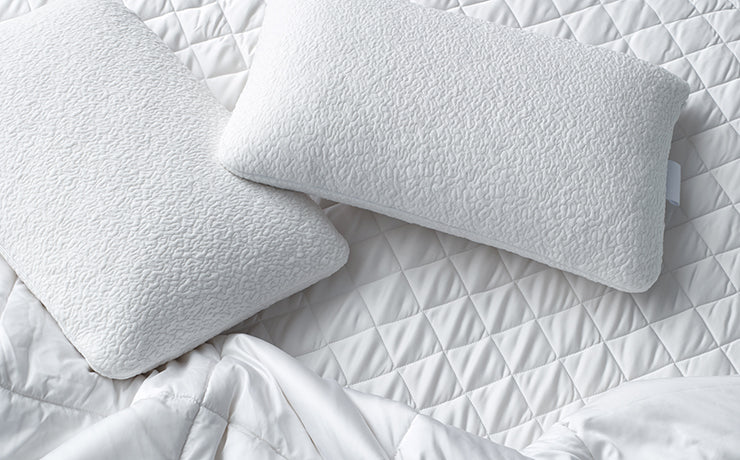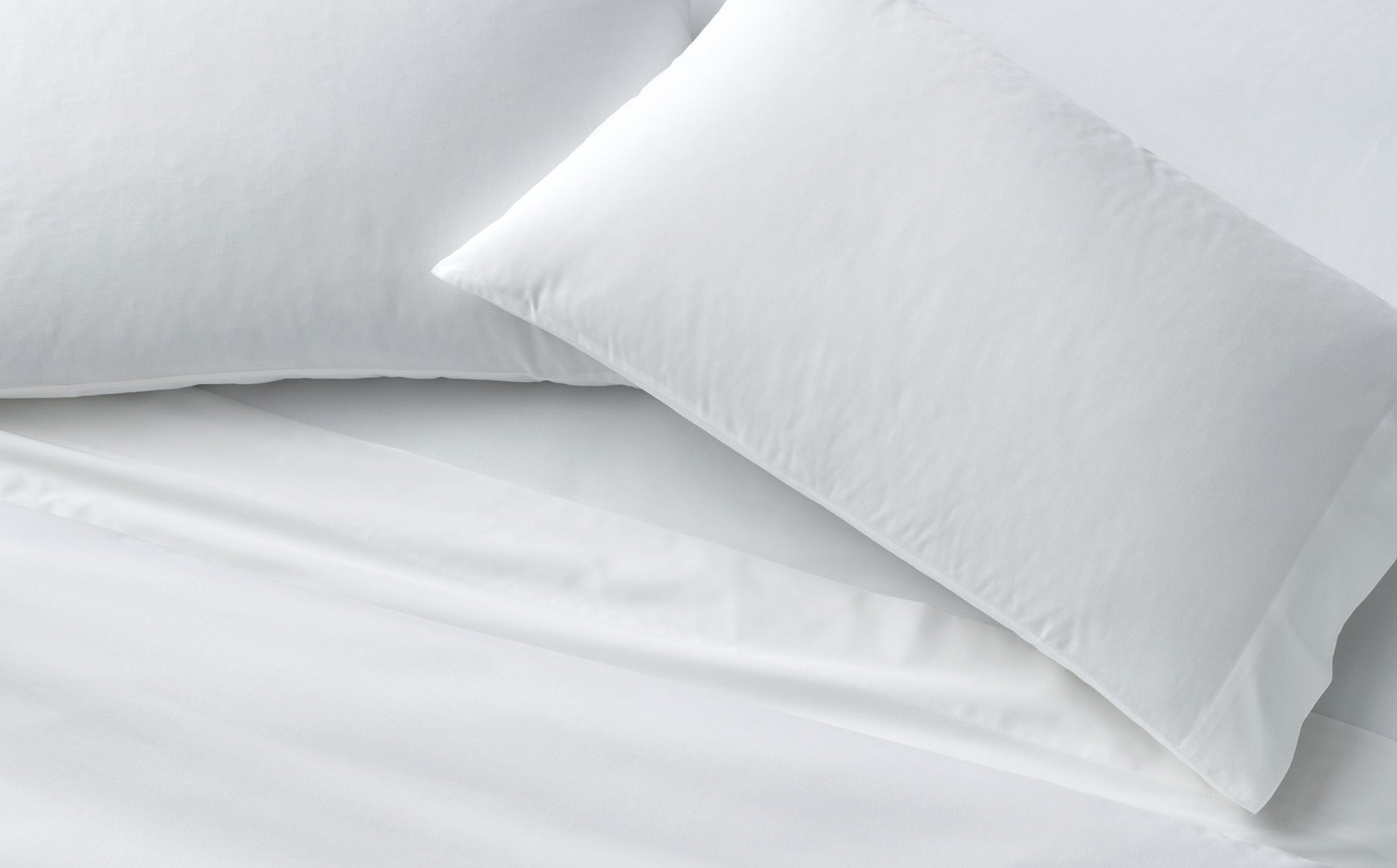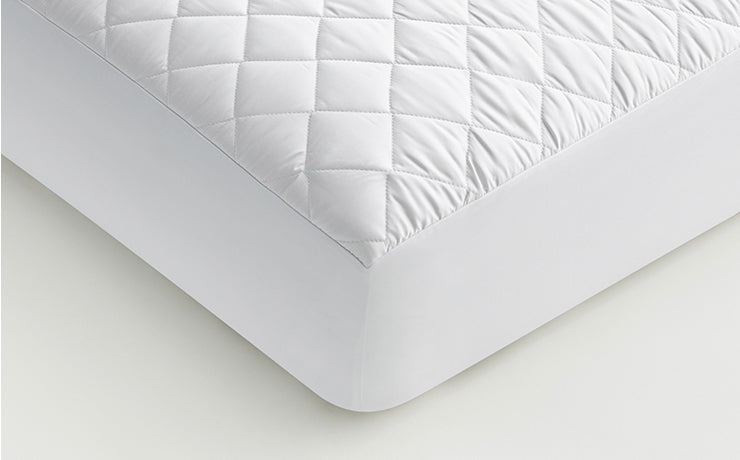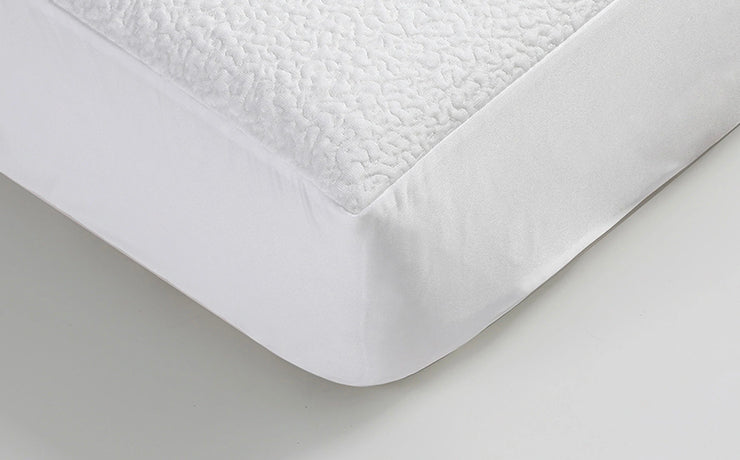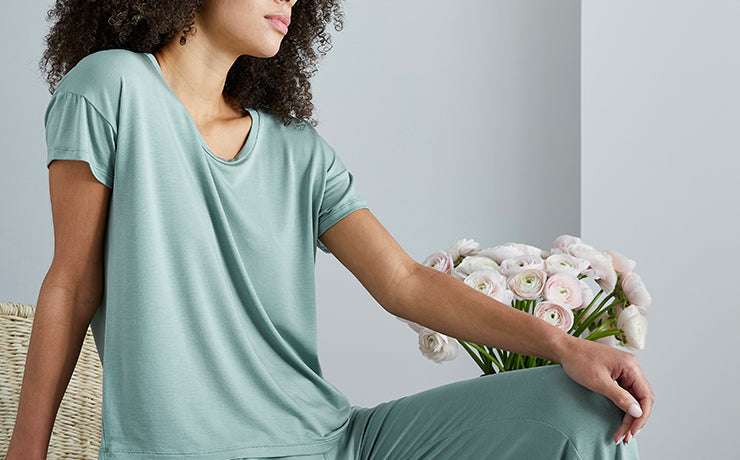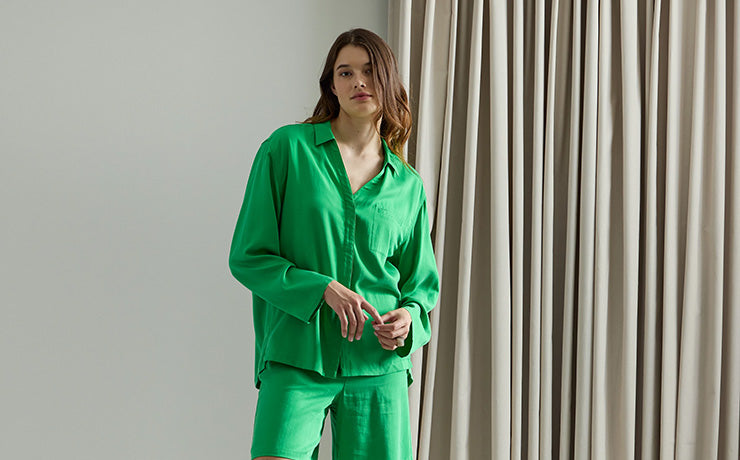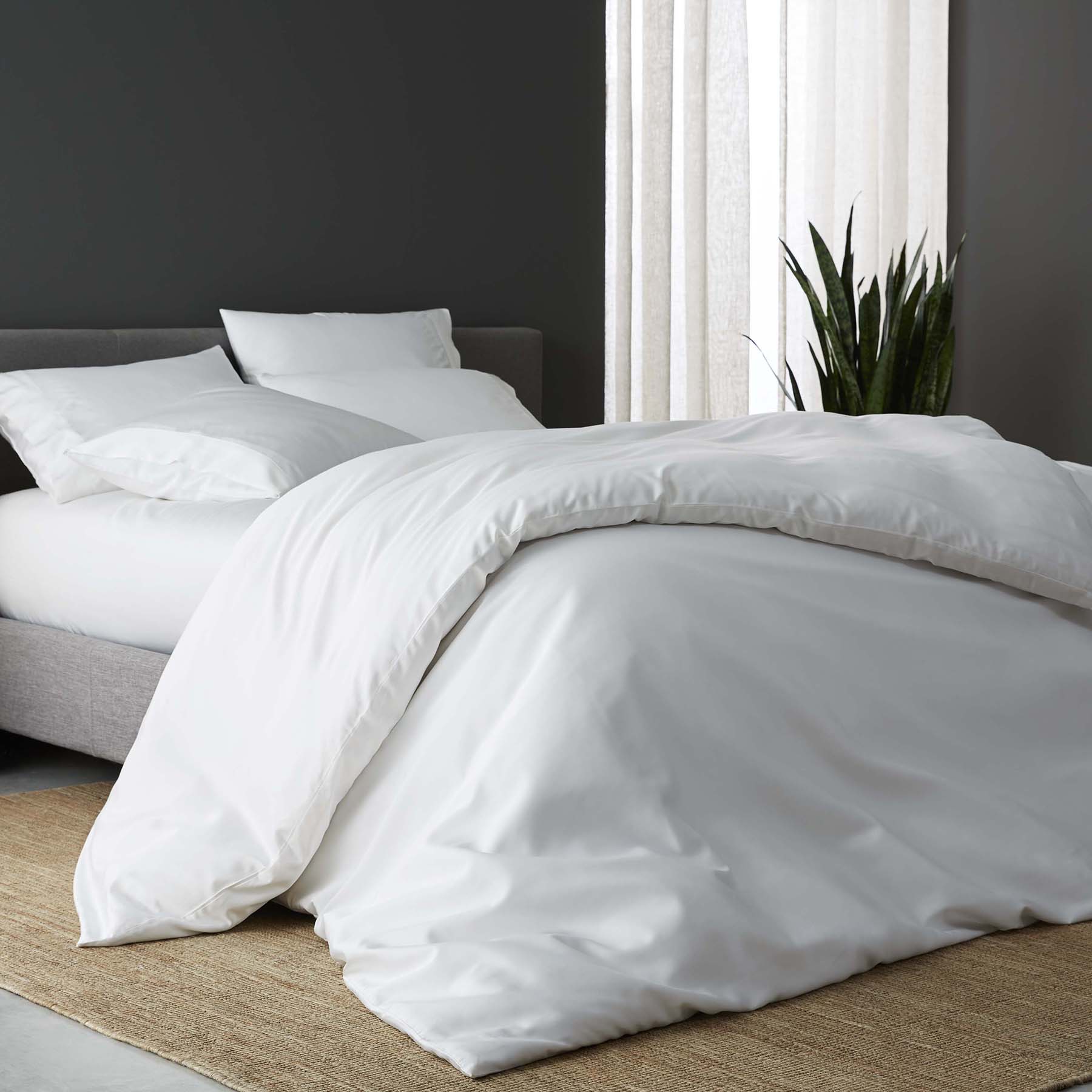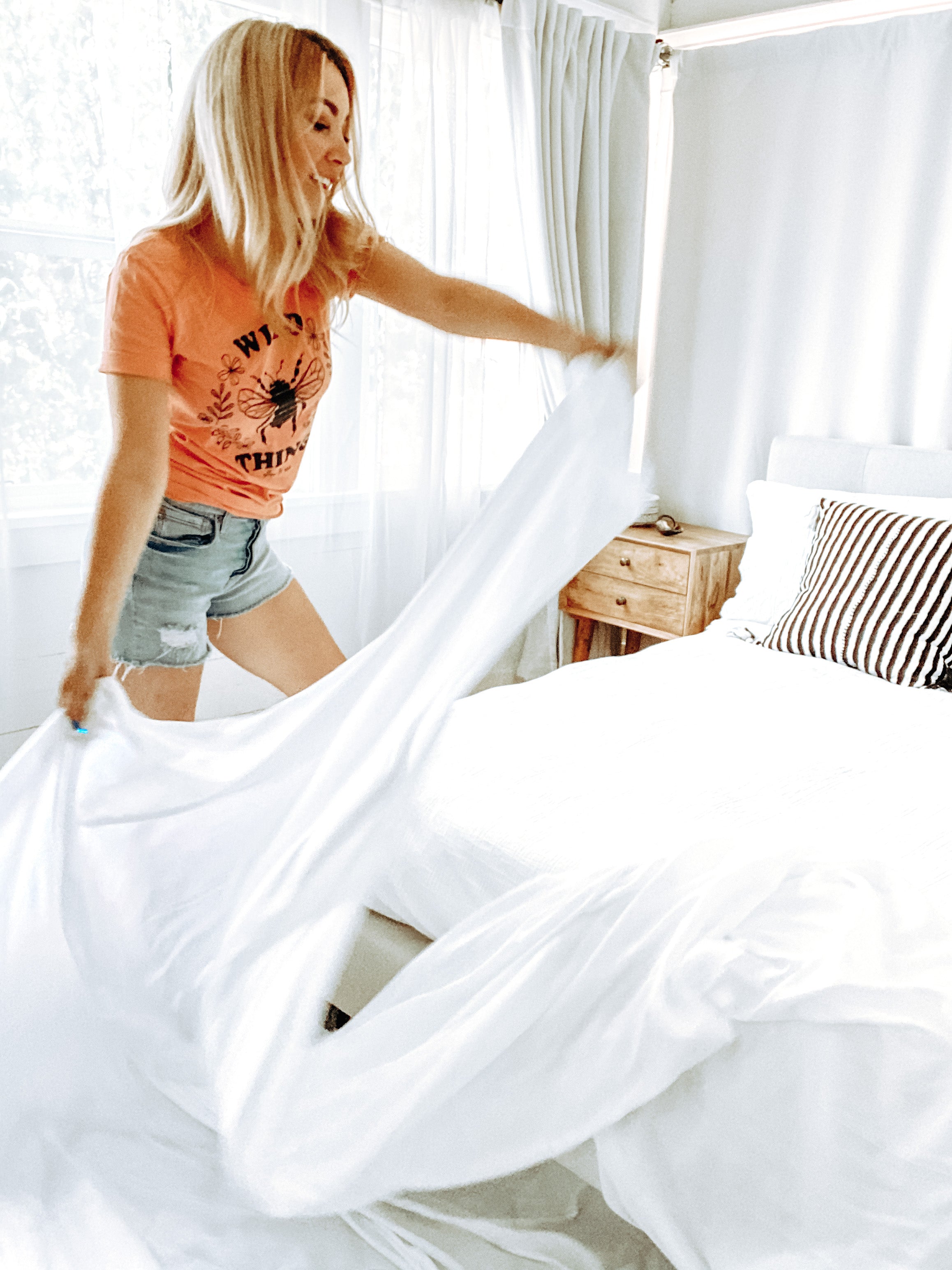
Answering Your Questions About The Eucalyptus Bedding Collection
Our team has been so thrilled with the response we've received about our Eucalyptus bedding collection! We've also received many questions, and wanted to share them with you to help you make the best, and most comfortable bedding selections.
Our top question is this: Why the switch?
We want to keep helping make healthier, more sustainable choices for our customers’ sleep and home experience. This, for us, was an opportunity to not only elevate the feel of our eucalyptus comforter set and bedding, but to also small-batch source this collection. Our raw materials are sustainably farmed in Europe, they do not contribute to deforestation, and we use the same organic solvents and process free of harsh chemicals in our manufacturing that we have for our other materials.
We've also been asked if the colors are the same as our previous Bamboo collection.
The answer is yes. Our colors will appear the same for both, so you can freely mix the new collection in alongside our Bamboo if you have that. Please do note, however, that we no longer carry the color Night. This makes it easy to coordinate your eucalyptus duvet cover with existing pieces.
Some other common questions are:
What is Lyocell? Is it the same as TENCEL™?
Yes, lyocell, as a material, is known sometimes by its trademarked lyocell fibers are made from a blend of eucalyptus and other wood sources from sustainably managed farms, and processed with organic solvents to create fibers and fabrics. We are Oeko-Tex certified, and again, we use organic solvents in our process to ensure fabric safety as well as sustainability in our process. Our sijo eucalyptus bedding reviews highlight the comfort and quality of our materials.
What is the difference between cotton and your eucalyptus bedding collection?
Cotton requires more water and energy in order to be produced than lyocell. It is also less sustainable to harvest and doesn't handle moisture wicking as well. Plus, cotton, even the luxurious varieties, takes time to completely soften or to get to the desired comfort level that this bedding inherently has. Lyocell, in general, also requires much less water and energy for production, making it a more environmentally friendly material. The fact that our lyocell is TENCEL™ lyocell means that there is even more transparency in our process. Our eucalyptus tencel sheets offer a luxurious feel right from the start.
What is the thread count of your TENCEL™ lyocell sheets in this collection?
At Sijo, thread count is not a focus for our bedding. The concept of higher thread counts denoting higher quality sheets, is a huge and long-shared marketing myth, and the guidelines for thread count have not been formally outlined by the FTC. Plus, thread count is not always accurate or useful as a measurement for all materials, and that is the case for our eucalyptus lyocell fabric. We focus on other components, such as sustainability, production quality, softness, and comfort as quality markers and put our energy into creating the best possible eucalyptus bed sheets that meet these standards.
Does this bedding smell like eucalyptus oils?
While eucalyptus essential oils are extremely popular, we do not infuse them into our bedding. Our process utilizes the wood pulp, and therefore doesn't have oil remnants from the leaves. That means that those allergic to the oils should be absolutely fine using this bedding.
Shop our eucalyptus collection:
- Eucalyptus Sheets
- Eucalyptus Duvet Cover
- Eucalyptus Comforter
- Eucalyptus Flat Sheet
- Eucalyptus Fitted Sheet
- Eucalyptus Pillow Cases
- Eucalyptus Down Alternative Pillow
- Eucalyptus Mattress Protector
Want to learn about the other benefits of our Eucalyptus Bedding Collection or about the TENCEL™ lyocell fibers? Check out our full post on benefits here.

